-
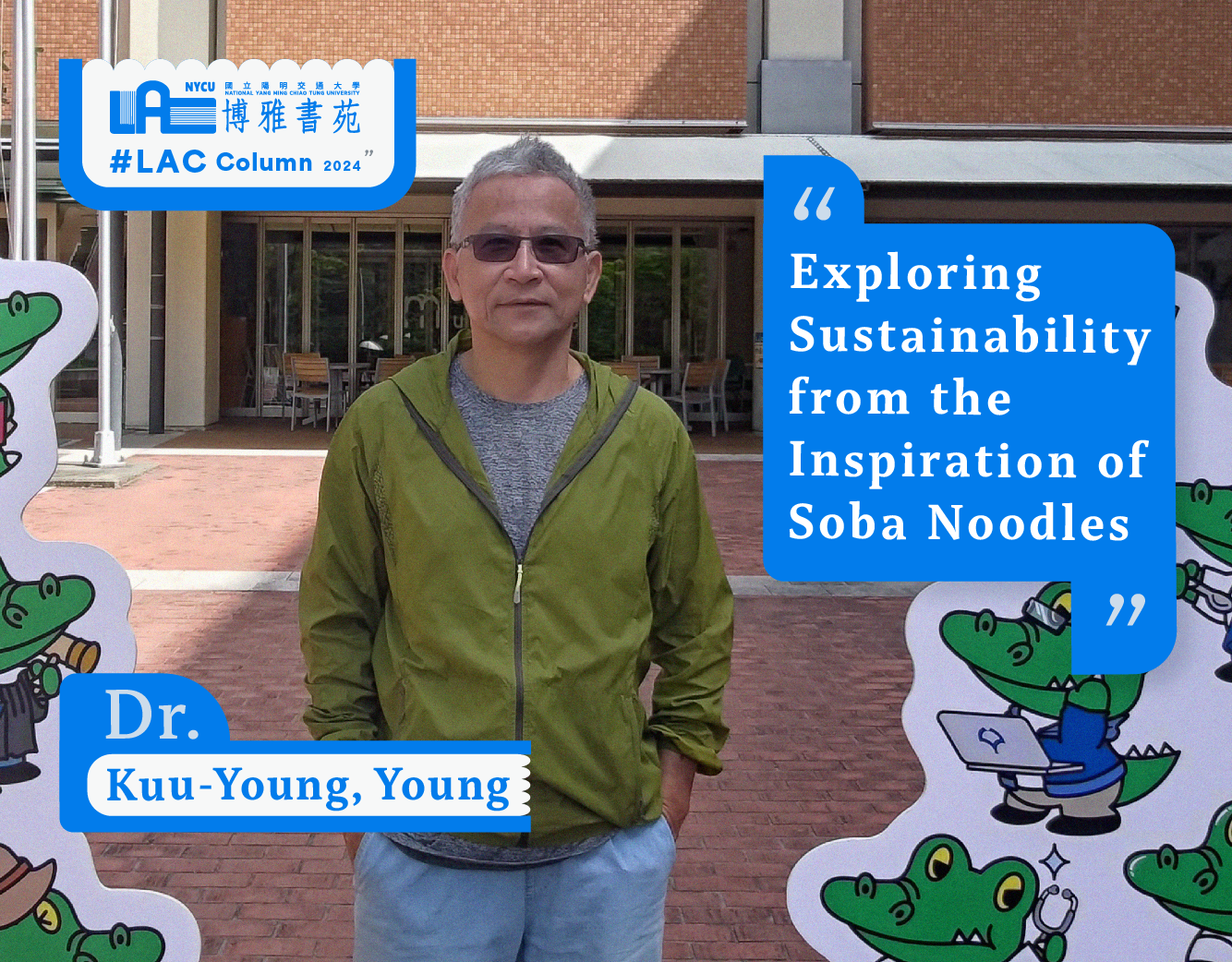
Expolring Sustanability from the Inspiration of Soba Noddles– Young, Kuu-Young
Taking advantage of the opportunity to attend an international conference in Kyoto, I revisited the renowned ancestral restaurant, Owariya. Established in 1465, nearly 560 years ago, this historical establishment is famous for its soba noodles. The signature dish, "Hourai Soba," is served in lacquerware and accompanied by exquisite side dishes. The blend of nostalgia and delectable MORE
-
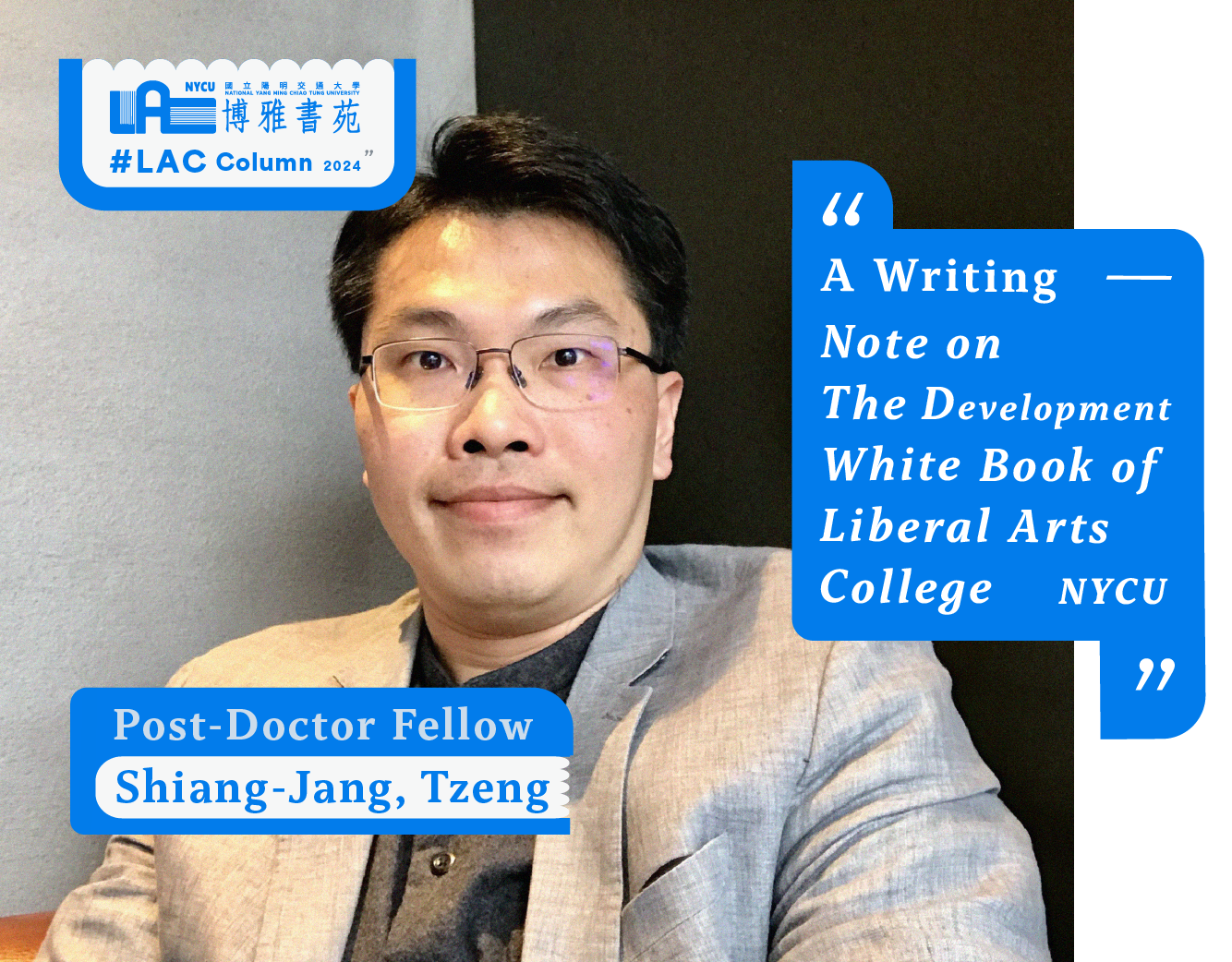
A Writing-Note on The Development White Book of Liberal Arts College NYCU—Shiang-Jang Tzeng
Paul Romer, the laureate of 2018 Nobel Prize in Economics, and Daron Acemoglu, the winner of 2005 Clark Prize (he is also the author of “ Why Nations Fail: Power, Wealth and Poverty ” and “ Power and Progress Power and Progress : Our Thousand-Year Struggle Over Technology and Prosperity ”) has always MORE
-
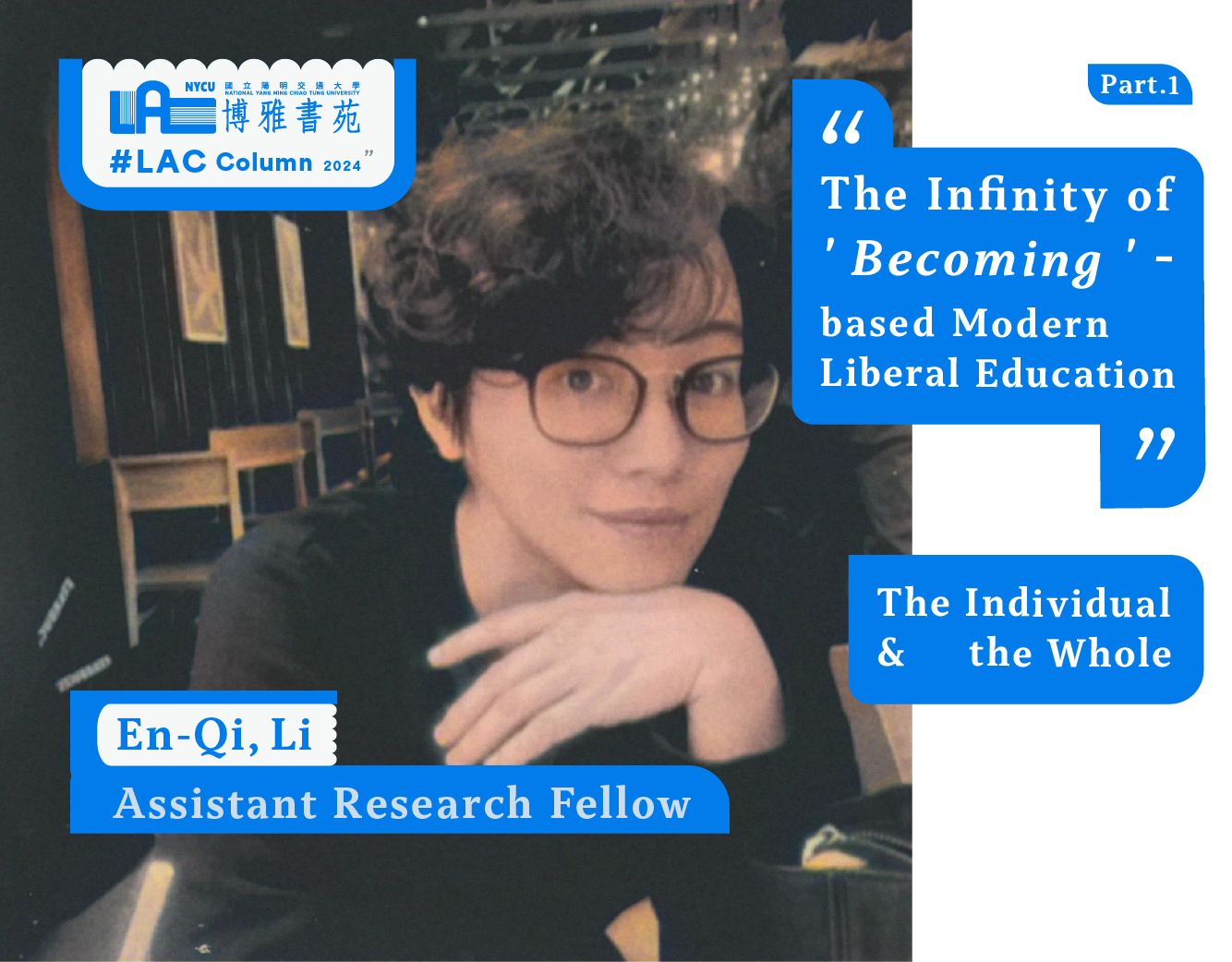
The Infinity of 'Becoming'-based Modern Liberal Education-En-QI Li
In the year 2024, as the tidal wave of artificial intelligence (AI) sweeps across the globe, its capabilities for autonomous learning and evolution necessitate a reevaluation of the uniqueness and irreplaceability of various domains. Consequently, this paper, drawing an analogy between the concept of AI and the human learning process and integrating the discourses of the educational philosopher John Dewey, views education not as a static, KPI-driven knowledge injection plan but as a dynamic process. It proposes a 'becoming'-based approach to liberal education as a pathway to ad MORE
-
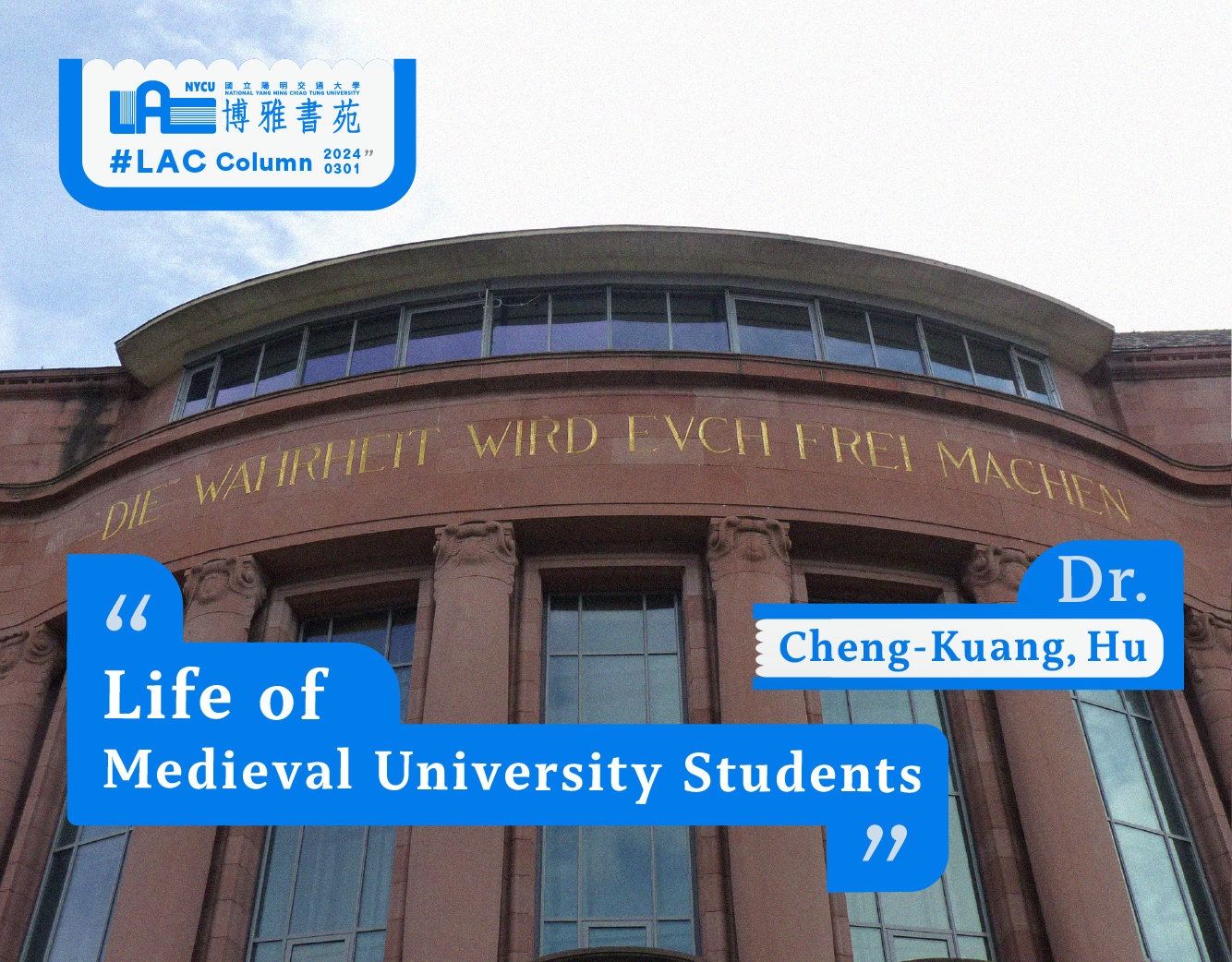
-
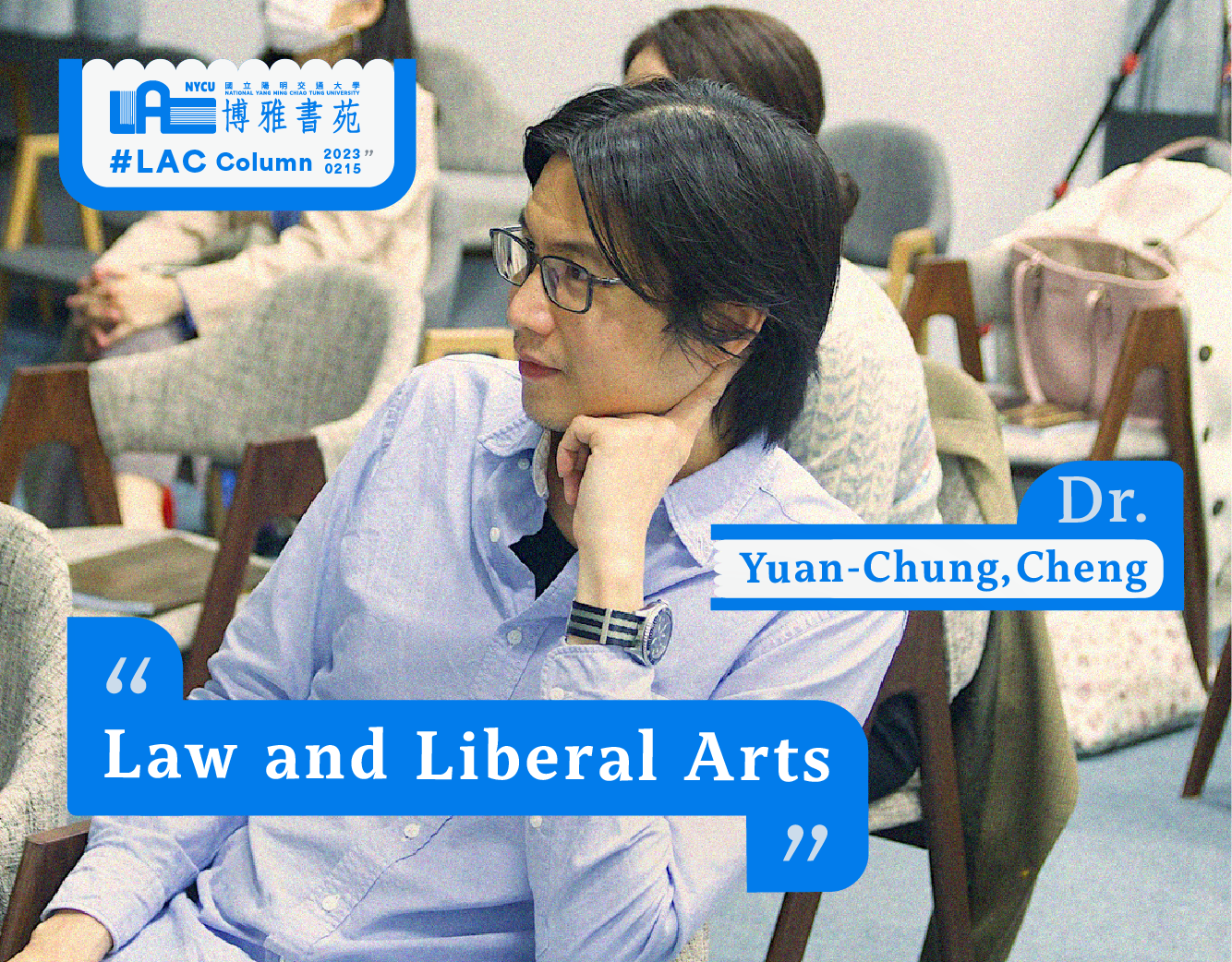
Law and Liberal Arts-Cheng, Yuan-Chung
"It is no surprise that so much legal scholarship and judicial analysis is unoriginal, unempirical, conventional, and unworldly, overwhelmingly verbal and argumentative (indeed, verbose and polemical), narrowly focused on doctrinal questions, mesmerized by the latest Supreme Court decisions, and preoccupied with minute and ephemeral distinctions MORE
-
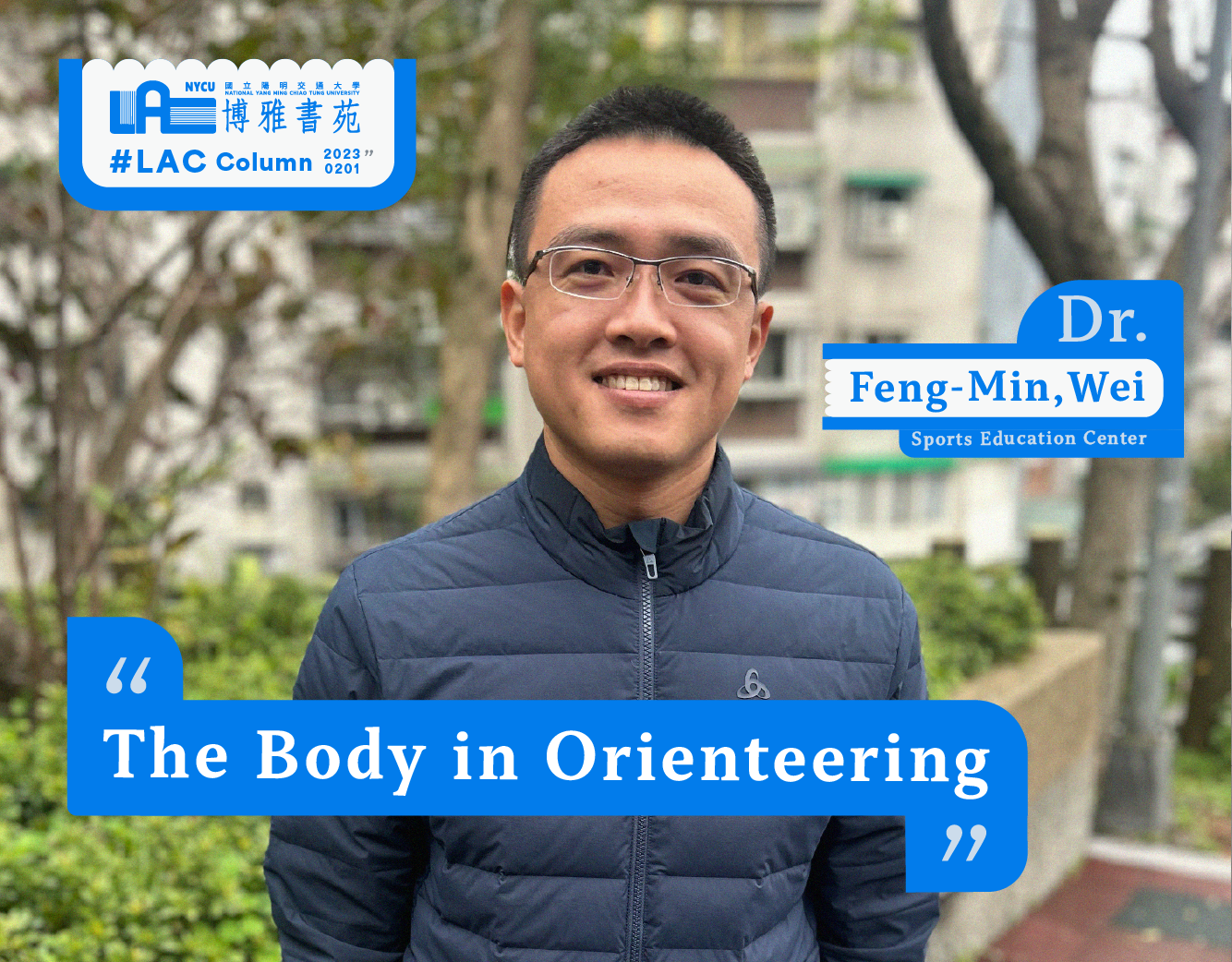
-
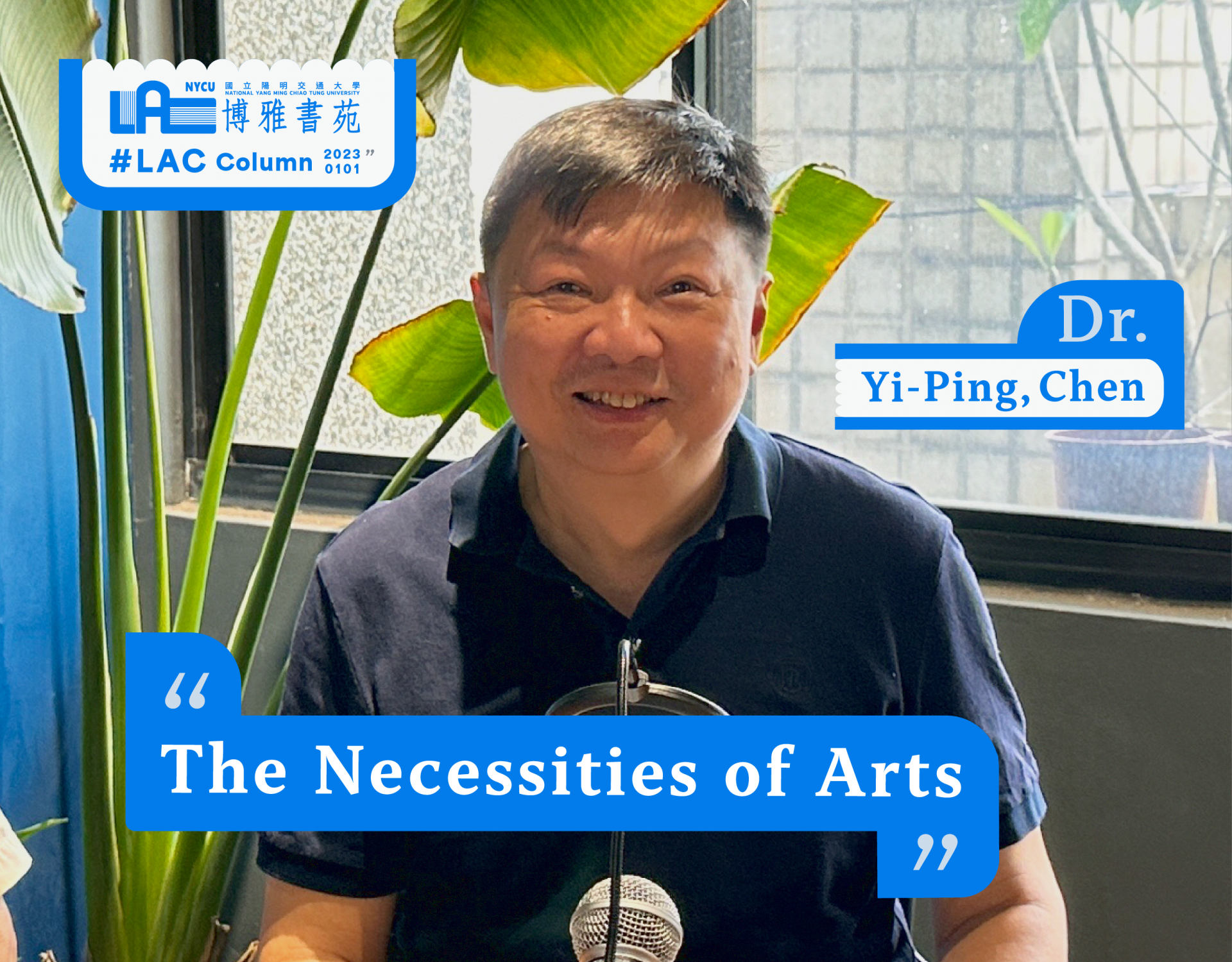
The Necessities of Arts-Chen, I-Ping
Since the establishment of the Arts Center at the Chiao-Tung Campus in 2000, millions of dollars have been invested annually, and the Arts Center has been dedicated to providing a rich visual arts feast, exciting music concerts, and other types of performances for faculty and students. After the merger, the Arts Center further expanded its activities, organizing the traditional Jacaranda Creative Award injecting an artistic, musical, and literary atmosphere into the campus life of all members of NYCU. MORE
-
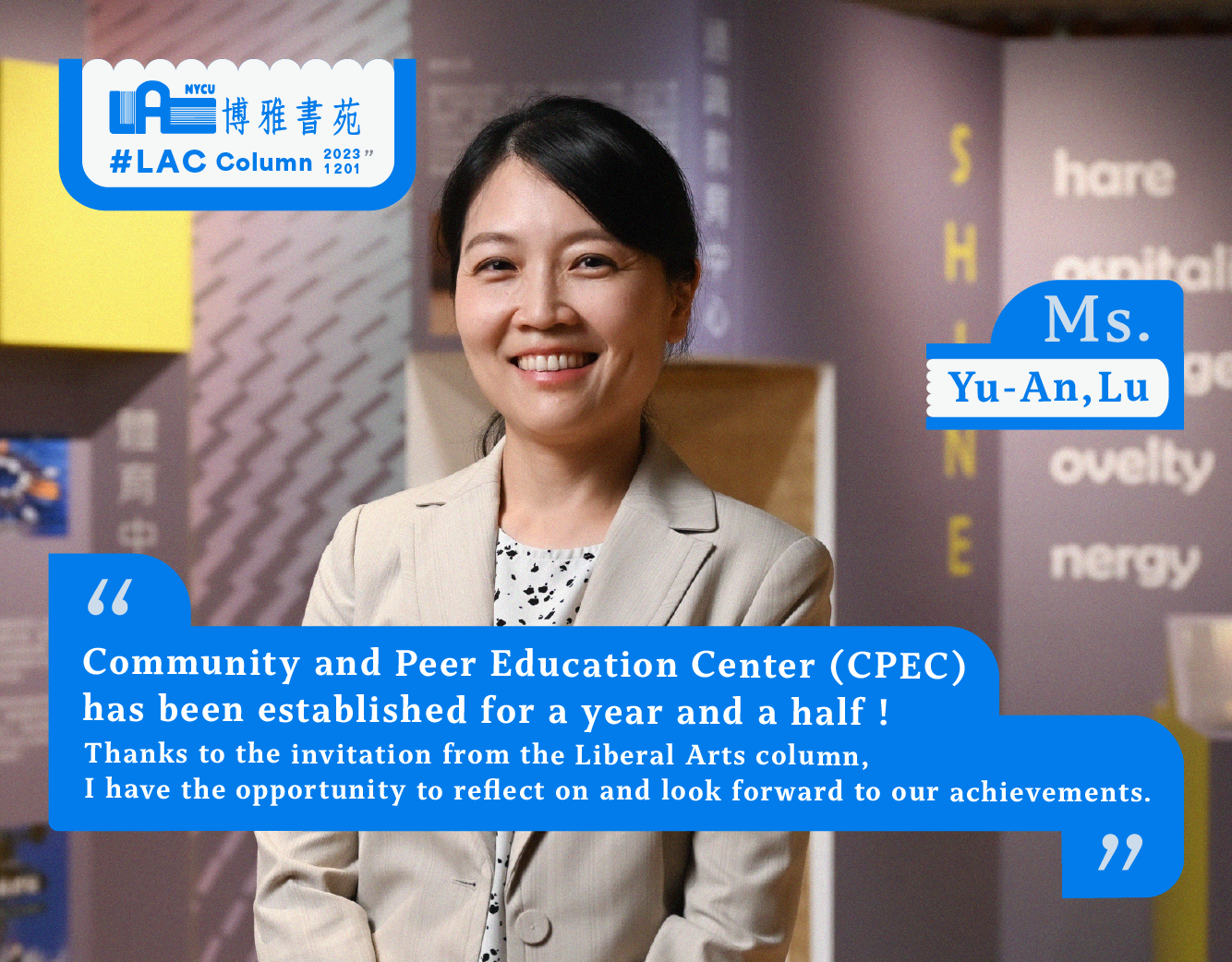
Community and Peer Education Center (CPEC) has been established for a year and a half! – Yu-
Community and Peer Education Center (CPEC) has been established for a year and a half! Thanks to the invitation from the Liberal Arts column, I have the opportunity to reflect on and look forward to our achievements. MORE
-
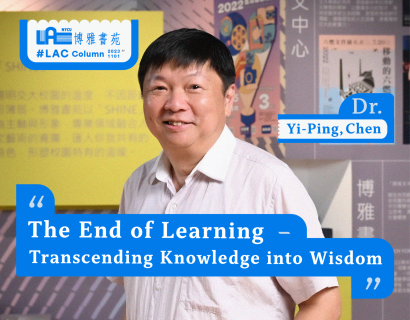
The End of Learning - Transcending Knowledge into Wisdom – Chen, I-Ping
Recently I was entrusted with a task – to contemplate the core competencies and basic qualities of students belonging to the Liberal Arts. This matter has been lingering in my mind, and subtly, it became linked with the recent Israeli-Palestinian conflict in the Middle East. I will attempt to elucidate the underlying logic of this connection within the constraints of limited space. MORE
-
![[IC Broadcasting, Hearing the Generation] Achieving Dreams and for the New Generation through Self-D](/userfiles/images/product/__thumbs/20231026144032687.jpg/20231026144032687__316x320.jpg)
[IC Broadcasting, Hearing the Generation] Achieving Dreams and for the New Generation through Self-D
支持學生激發創意與實踐築夢計畫—陽明交通大學Active Learning 自主學習計畫經驗分享------李佳親* 盧郁安** 【服務學習與社會連結學刊】,6期 2023 年4 月,頁103-108 MORE
-
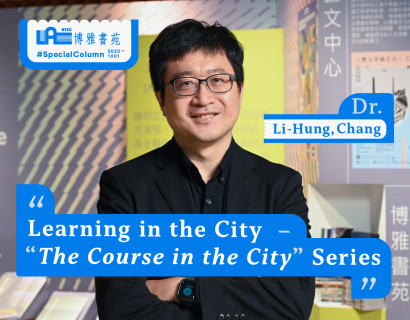
Learning in the City – “The Course in the City” Series-Chang, Li-Hung
In the blink of an eye, September arrived, marking the beginning of a new school year and a warm welcome to new students. Apart from assisting students with course registration, credit validation, and various administrative matters, the Liberal Arts has been busy arranging classrooms MORE
-
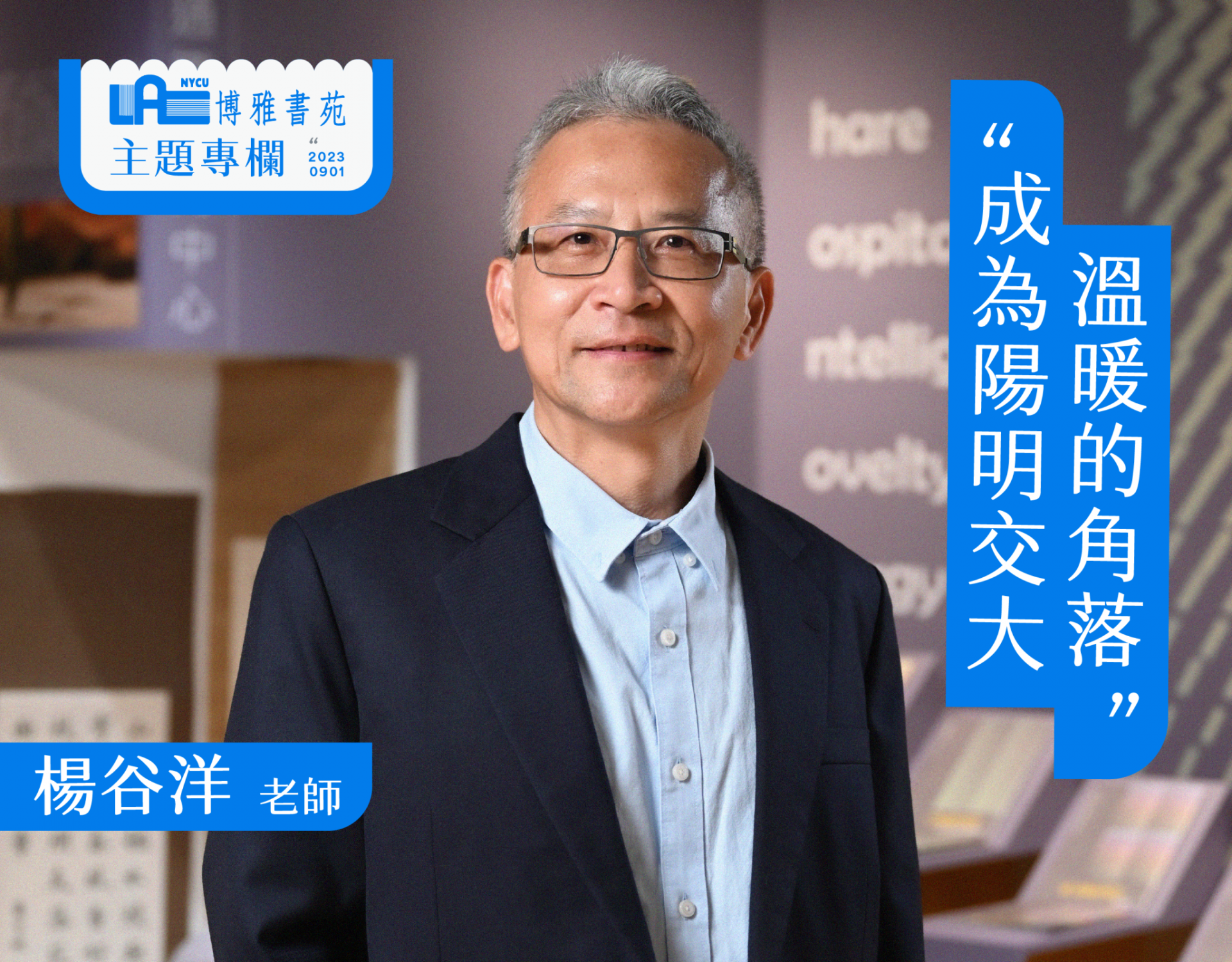
SHINE NYCU – Young, Kuu-Young
It has been more than two years since the conception, planning, and actual operation of the Liberal Arts College are in place. Following the One Tree, One Hundred Harvests Project and with the efforts of the entire faculty, staff, and students, the Liberal Arts has extended its influence both within and outside the campus. MORE
